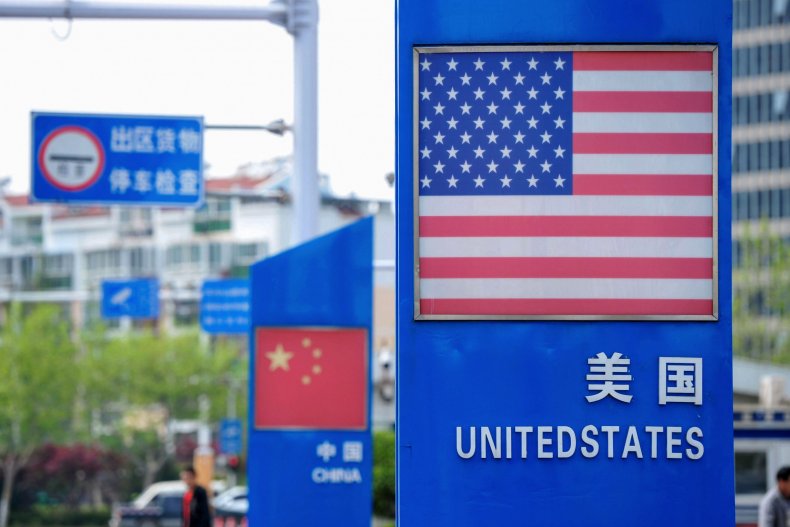new Deutsche Bank survey shows that 41 percent of Americans say they won't buy products made in China, and 35 percent of Chinese citizens won't buy products from America either.
But while the consumer hostility may directly result from the countries criticizing one another over their coronavirus mismanagement, it also portends ongoing changes in trade between the two economic powers.
At first glance, the survey from Deutsche Bank's big data platform, dbDig, seems to suggest a growing mistrust of foreign-made goods, it also suggests that a majority of consumers on both shores aren't completely ready to shun each country's products either.
U.S. consumer distrust of China has likely also been affected by the 18-month trade
war between the two countries, with billions of dollars in tariffs placed on each country's imported goods.
war between the two countries, with billions of dollars in tariffs placed on each country's imported goods.
In early January, the U.S. signed a trade deal with China, but the South China Morning Post noted, "We must bear in mind that the trade war is not over yet—the U.S. hasn't revoked all its tariffs on China and China is still implementing its retaliatory measures."
"There are still many uncertainties down the road," it noted, including whether each country actually honors the deal. Such uncertainties have only increased because of the coronavirus epidemic.
Newsweek reached out to the White House and Chinese Ambassador to the United States Cui Tiankai for comment. This story will be updated with any response.

Tariffs still remain on hundreds of billions of dollars worth of Chinese products, and now U.S. President Donald Trump is threatening new tariffs and even "to cut off the whole deal" with China as a way to punish the country for allegedly allowing the pandemic to spread.
In retaliation, Chinese officials and state-owned media accused the U.S. of blaming China to deflect its own mishandling of the epidemic.
But even outside of the COVID-19 epidemic, countries are likely to conflict over
emerging technologies like Chinese state-owned enterprises, artificial intelligence and super-fast 5G mobile networks, says former Federal Reserve Chair Janet Yellen.
emerging technologies like Chinese state-owned enterprises, artificial intelligence and super-fast 5G mobile networks, says former Federal Reserve Chair Janet Yellen.
A November 2019 report by the United Nations found American consumers had literally paid the price of the trade war while the Chinese economy took a $35 billion hit in the
first half of 2019.
first half of 2019.
After the coronavirus pandemic eventually subsides, Bill DeMartino, chief customer officer at the supply chain risk management solution company RiskMethods, thinks
that companies around the world will want to become less reliant on China for its products, knowing that a disruption in Chinese production could negatively disrupt
supply chains worldwide.
that companies around the world will want to become less reliant on China for its products, knowing that a disruption in Chinese production could negatively disrupt
supply chains worldwide.
"Post-pandemic, you're going to have a simmering pool of forces–companies that are going to look at the risk of being reliant on China, or being seen as making everything there," DeMartino told Forbes.
"For consumers, that could become a negative. New technologies, robotics, artificial intelligence... all of this will make onshoring more feasible," DeMartino said, meaning
that more countries like the U.S. will likely start manufacturing products it once relied on China to provide.
that more countries like the U.S. will likely start manufacturing products it once relied on China to provide.



Post a Comment